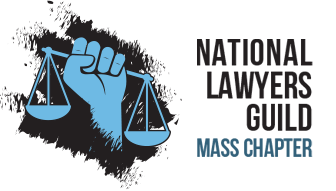There are several issues which emerge from prisons in MA such as Lack of Health Care, Mental Health, Substance Use Disease (SUD) Programing, Education and failures in overall behavioral health treatment. The shift to the Executive Office of Public Safety & Security (EOPSS) from Health & Human Services {HHS) ushered in a Culture of Punishment. The attitude and approach of correctional staff quickly shifted from treatment to punishment. This shift continues to this day and must be known by legislators as there are numerous pieces of legislation filed this year to address such failures in the DOC.
I learned from personal experiences within this system for 34+ years that the DOC takes the position to punish the disease, behavior or action out of the person and can’t address the causative factors of incarceration. If each issue is addressed individually in legislation such as (reentry, segregation, youthful offenders, phone access, visits, programs, health care, SUD’s, etc.) history shows that the DOC, in conjunction with EOPSS, will not comply with reforms. Rather than put efforts into rehabilitation, the current reality of the DOC ls to reduce the number of programs and groups available to prisoners. Then the DOC relies on punishment to address behavioral health issues of prisoners, an opposite approach to what the DOC implies to the public.
The belief of many prisoners is that one stroke of the pen from Governor Healey will reach every goal and have wide reaching effects.
Briefly, prior to the 1990s the DOC and Parole was under HHS. Under then Governor Weld, both were transferred to the control of EOPSS. EOPSS is focused on security and never has it been designed or focused on rehabilitation and treatment as the DOC was under HHS. Prior to this shift to EOPSS, Massachusetts and the DOC was at the forefront of rehabilitation and innovation in programing and treatment. Since the DOC has moved to EOPSS the sole focus has been moved to security at the cost of rehabilitation and behavioral health. Most of the DOC administrators have been trained under the theory of “Boot Strap Tactics” which basically means to break the prisoner by punishment and repression. The DOC’s budget reflects their true purpose with about 70% + of the budget spent on security staff and less than 2% of programming. In other words, only .02¢ out of every dollar is providing rehabilitation and treatment programing.
One proposal to effect meaningful change and encourage Governor Healy to reverse Governor Weld’s decision and move the DOC and Parole back under Health & Human Services. This will then better equip prisoners and the DOC to address trauma, mental health, substance addiction and factors which are the underpinnings of crimes committed. Under EOPSS the per prisoner cost has risen from a per prisoner cast of $46,000 a year to around $130,000. HHS would better over the $730,00D,OOO budget. This shift would create a climate suitable for healing and reconciliation for everyone effected by crime and make a safer society, helping prisoners and our families along with survivors of crime and the greater community. HHS will better address fiscal priorities such as utilizing lower security prisons and make more effective programing and treatment and working conditions.
These thoughts are offered as a Community Collaboration to create meaningful change, and to encourage Governor Healey to make such a meaningful progressive decision.

William J. Duclos
Norfolk Inmate Council
MCI-Norfolk



